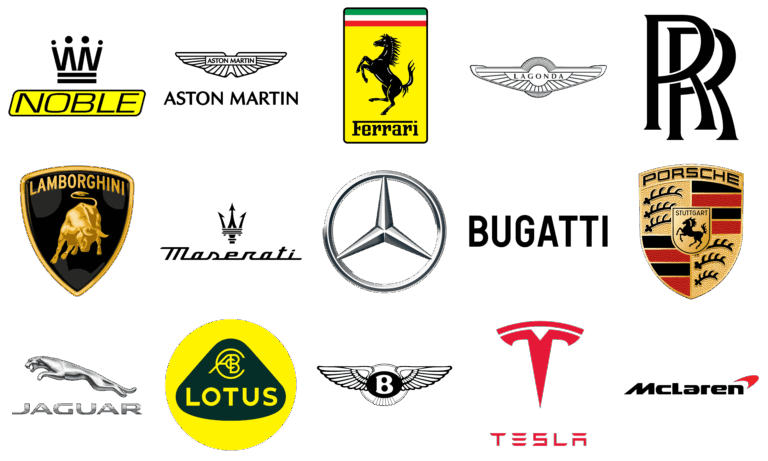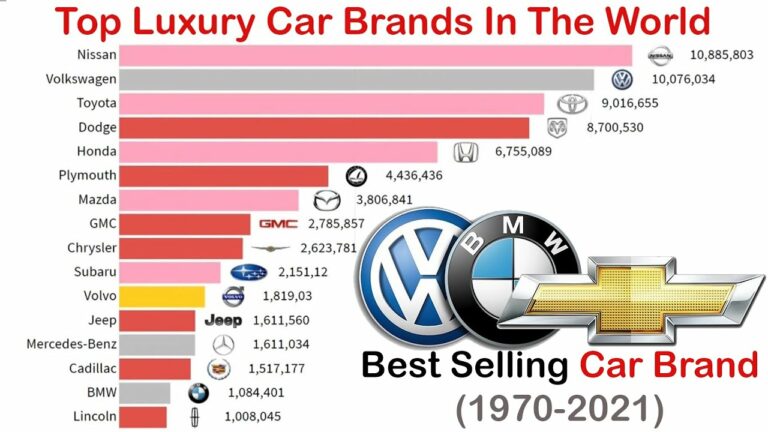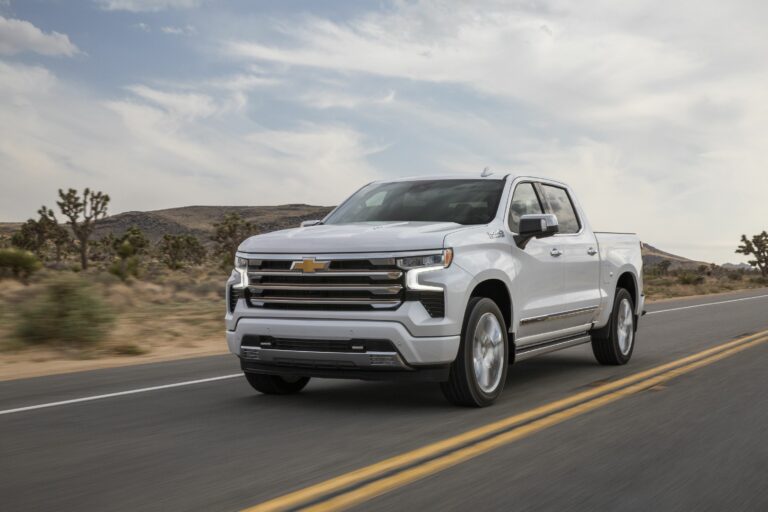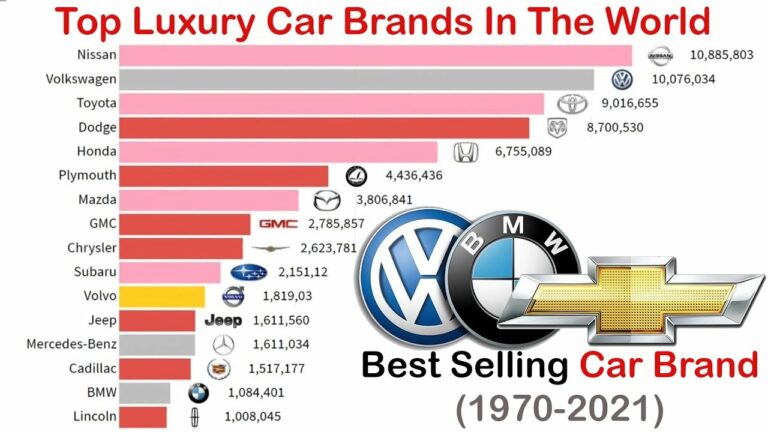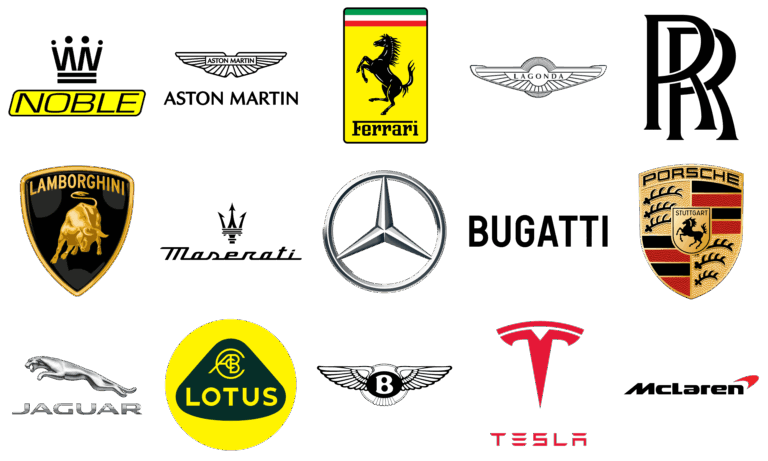Branded Title Cars For Sale: Unlocking Value or Unveiling Risks?
Branded Title Cars For Sale: Unlocking Value or Unveiling Risks? cars.truckstrend.com
The allure of a significantly lower price tag often draws prospective car buyers to "branded title" vehicles. In a market where car prices seem to be constantly climbing, the prospect of acquiring a newer model or a luxury vehicle for a fraction of its clean-title counterpart can be incredibly tempting. But what exactly are branded title cars, and are they the hidden gems they appear to be, or do they harbor unforeseen pitfalls? This comprehensive guide aims to demystify branded title cars, providing you with the knowledge and practical advice needed to navigate this unique segment of the automotive market. Understanding the nuances of branded titles is crucial for making an informed decision that balances potential savings with inherent risks.
Understanding Branded Titles: Types and Their Meanings
Branded Title Cars For Sale: Unlocking Value or Unveiling Risks?
At its core, a "branded title" is a permanent designation on a vehicle’s record, issued by a state’s Department of Motor Vehicles (DMV), indicating that the vehicle has sustained significant damage, undergone a major event, or has a particular history that sets it apart from a "clean title" vehicle. This brand serves as a warning to future owners, signifying that the car’s past might impact its safety, reliability, or resale value.
Here are the most common types of branded titles you’ll encounter:
- Salvage This is perhaps the most well-known brand. A vehicle receives a salvage title when it has been declared a "total loss" by an insurance company. This typically means the cost of repairs (due to accident, flood, fire, theft, or vandalism) exceeds a certain percentage of the vehicle’s actual cash value (ACV), often 70-80% depending on the state. A salvage titled car is usually not roadworthy and cannot be legally driven until it undergoes repairs and passes a safety inspection.
- Rebuilt/Reconstructed Once a salvage vehicle has been repaired to a roadworthy condition and has passed a rigorous state inspection, its title is often re-branded as "rebuilt" or "reconstructed." This indicates that while the car was once a total loss, it has since been restored. It’s important to note that a rebuilt title does not erase the salvage history; it simply confirms it’s been repaired and inspected.
- Flood As the name suggests, a flood title indicates the vehicle has sustained significant water damage, typically from being submerged in water. Flood damage can be particularly insidious, leading to long-term electrical issues, corrosion, mold, and mechanical failures that may not be immediately apparent.
- Hail This brand is applied to vehicles that have suffered extensive cosmetic damage from hail storms. While often less severe than accident or flood damage, significant hail damage can affect body panels, glass, and sometimes even structural components, leading to a diminished value.
- Lemon Law Buyback If a vehicle has a persistent, unrepairable defect (or a series of defects) that substantially impairs its use, value, or safety, and the manufacturer has repurchased it from the original owner under state "lemon laws," it will often receive a lemon law buyback title. These cars might have had multiple repair attempts for the same issue.
- Odometer Rollback/Tampered This brand indicates that the vehicle’s odometer has been illegally altered to show fewer miles than it has actually traveled. This is a serious felony and significantly impacts the vehicle’s value and reliability assessment.
- Junk/Scrap Similar to a salvage title, but usually indicates the vehicle is beyond economical repair and is intended only for parts or scrap metal. These vehicles are generally not intended to be returned to the road.
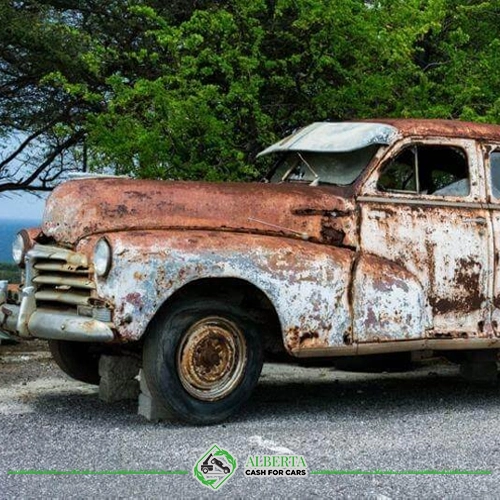
The Appeal of Branded Title Cars: Why Buyers Consider Them
The primary motivator for considering a branded title car is, without a doubt, cost savings. Branded title vehicles typically sell for 20% to 50% less than their clean-title counterparts, sometimes even more, depending on the brand type and the extent of the original damage. This discount can make a more recent model, a higher trim level, or even a luxury vehicle financially accessible to buyers who might otherwise be priced out of the market.

Beyond the upfront savings, some buyers see branded title cars as a smart investment, particularly if they possess mechanical skills or know a trusted mechanic who can accurately assess and repair the vehicle. For those looking for a project car, or a second vehicle for commuting where minor imperfections are acceptable, a branded title can offer significant value.
The Crucial Due Diligence: What to Do Before You Buy
While the savings are attractive, buying a branded title car without thorough investigation is akin to buying a lottery ticket – the odds are stacked against you. Here’s a detailed guide to your due diligence process:
- Obtain a Comprehensive Vehicle History Report: This is your absolute first step. Services like CarFax and AutoCheck provide detailed reports that will clearly state the title brand and often include information about the damage that led to the branding, previous owners, service history, and odometer readings. Pay close attention to the nature of the damage (e.g., front-end collision, flood, fire), the date of the incident, and any subsequent repairs.
- Demand an Independent Pre-Purchase Inspection (PPI): This is non-negotiable for a branded title car. Do not rely solely on the seller’s assurances or even a dealership’s inspection. Take the vehicle to a reputable, independent mechanic who specializes in the make and model you’re considering. The mechanic should perform a comprehensive inspection, looking for:
- Evidence of frame damage or misalignment: Even if repaired, this can indicate structural integrity issues.
- Quality of repairs: Are welds clean? Is paint matching perfect? Are parts OEM or aftermarket? Poor repairs can lead to future problems.
- Electrical system issues: Especially critical for flood or accident vehicles.
- Fluid leaks, rust, and corrosion: Common in flood-damaged cars.
- Hidden damage: Sometimes, repairs only cover visible damage, leaving underlying issues untouched.
- Airbag system functionality: Ensure airbags were properly replaced after deployment.
- Engine and transmission health: Check for any unusual noises, vibrations, or performance issues.
- Understand the Nature of the Damage: If the car was rebuilt from a salvage title, try to ascertain the specific type of damage it sustained. A car salvaged due to a minor fender bender with extensive cosmetic damage is often a better bet than one salvaged due to a severe structural collision or flood damage.
- Thorough Test Drive: Don’t just drive it around the block. Take it on highways, city streets, and varying road conditions. Listen for unusual noises, feel for vibrations, test all electronic components, and pay attention to how the steering, braking, and suspension feel.
- Review All Repair Documentation: If the seller claims the car was professionally repaired, ask for receipts, photos of the damage before and during repair, and details about the parts used. A reputable seller should be transparent about the repair process.
- Research State-Specific Regulations: Title branding rules and inspection requirements vary by state. Understand what is required in your state for a branded title car to be legally registered and driven.

Financing and Insuring Branded Title Cars
This is where the waters can get murky.
- Financing: Many traditional lenders and banks are hesitant to finance branded title vehicles due to their reduced value and perceived higher risk. You might find some smaller credit unions or specialized lenders who offer loans for these cars, but expect higher interest rates and stricter terms. Be prepared to pay cash or secure a personal loan.
- Insurance: Insuring a branded title car can also be challenging. While liability insurance is usually available, securing comprehensive and collision coverage can be difficult or significantly more expensive. Insurers may be wary of the vehicle’s pre-existing damage, making it hard to determine new damage versus old in the event of a claim. Some may only insure the car for its current market value, which is significantly less than a clean-title vehicle. Always get insurance quotes before you buy.
Resale Value and Future Considerations
One of the most significant drawbacks of branded title cars is their diminished resale value. Even if perfectly repaired and maintained, a branded title will always remain on the vehicle’s record. When it comes time to sell, you will likely face a smaller pool of potential buyers and will have to price the car significantly lower than comparable clean-title vehicles. Transparency about the car’s history will be paramount, and you might need to educate future buyers, just as you are doing now.
Consider the long-term reliability. While a car might pass inspection and appear fine, some damage (especially flood or structural) can manifest years later, leading to unexpected and costly repairs. Warranties are also usually void on branded title cars, leaving you responsible for any issues.
Tips for a Successful Branded Title Car Purchase
- Be Patient and Thorough: Don’t rush the process. There are many branded title cars out there. Take your time to find the right one and perform all necessary checks.
- Set a Realistic Budget: Factor in potential future repairs, higher insurance costs, and the lower resale value when setting your budget.
- Get Everything in Writing: Ensure the title brand is clearly stated on all sales documents. Any promises made by the seller should be in writing.
- Ask for Documentation: Beyond the vehicle history report, ask for repair receipts, photos, and any other relevant paperwork.
- Negotiate Aggressively: The branded title significantly reduces the car’s value. Use this to your advantage during price negotiations.
- Consider Your Own Mechanical Aptitude: If you’re mechanically inclined or have a trusted, experienced mechanic, you might be better positioned to identify and address potential issues.
- Prioritize Light Damage Brands: Generally, cars with hail damage or minor cosmetic salvage are safer bets than those with extensive structural, flood, or fire damage.
Potential Challenges and How to Mitigate Them
- Undisclosed or Hidden Damage: Even with a PPI, some damage, particularly electrical or deeply structural, can be missed.
- Warranty Issues: Manufacturer warranties are typically voided once a car receives a branded title.
- Difficulty Reselling: The market for branded title cars is smaller, and buyers are often more scrutinizing and demand deeper discounts.
- Long-Term Reliability Concerns: Even well-repaired vehicles can develop issues related to their past damage down the line.
Mitigation: The most effective mitigation strategy for all these challenges is rigorous pre-purchase inspection by an independent expert combined with a comprehensive vehicle history report. Be prepared to walk away if the seller isn’t transparent or if the PPI reveals significant underlying issues.
Illustrative Price Considerations for Branded Title Cars
It’s impossible to provide a definitive price table for "Branded Title Cars For Sale" as prices vary wildly based on make, model, year, original damage, quality of repairs, and location. However, the table below illustrates the potential savings you might expect and the factors that influence the price of branded title vehicles compared to their clean-title counterparts.
| Feature / Category | Clean Title Car (Example: 2020 Honda Civic EX) | Branded Title Car (Example: 2020 Honda Civic EX) | Price Impact / Notes |
|---|---|---|---|
| Typical Market Value | $22,000 – $25,000 | $12,000 – $18,000 (approx. 30-50% less) | Significant upfront savings is the main appeal. |
| Title Type | Clean | Salvage, Rebuilt, Flood, Hail, Lemon Law, etc. | Title brand directly dictates discount. Rebuilt > Salvage. |
| Original Damage | None (minor wear/tear) | Minor cosmetic, Hail, Light accident, Flood, Fire | Severity & type of damage impact price. Flood/Fire often lowest. |
| Quality of Repairs | Not applicable | Excellent, Good, Fair, Poor | High-quality, documented repairs increase value. |
| Miles/Condition | Low-Moderate, Excellent condition | Varies, can be low miles but damaged | Lower miles on branded car can be a good find, but still discounted. |
| Financing Availability | High | Low (Specialized lenders only) | Limited financing options may require cash purchase. |
| Insurance Premiums | Standard | Higher / Limited coverage (e.g., no comp/coll) | Expect higher rates or only liability options. |
| Resale Value | Strong | Significantly lower (Difficult to resell) | Permanent title brand ensures lower future sale price. |
| Warranty | Often available | Usually voided | No manufacturer warranty, ‘as-is’ purchase. |
Note: The prices listed are purely illustrative and subject to market fluctuations and individual vehicle specifics.
Frequently Asked Questions (FAQ)
Q1: Are branded title cars safe to drive?
A1: A properly repaired and inspected branded title car (especially a rebuilt one) can be safe to drive. However, the safety largely depends on the quality of the repairs and the original damage. A thorough pre-purchase inspection by an independent mechanic is crucial to ensure safety.
Q2: Can I get a loan for a branded title car?
A2: It’s challenging. Most traditional banks and credit unions are reluctant to finance branded title vehicles. You might find some specialized lenders or smaller local credit unions willing to, but expect higher interest rates and a larger down payment. Paying cash is often the easiest option.
Q3: Can I insure a branded title car?
A3: Yes, but it can be difficult to get full coverage (comprehensive and collision). Liability insurance is generally available. Insurers may offer limited coverage or charge higher premiums due to the car’s history and reduced value. Always get insurance quotes before you buy.
Q4: How much cheaper are branded title cars compared to clean title cars?
A4: Branded title cars typically sell for 20% to 50% less than their clean-title counterparts. The exact discount depends on the type of brand, the extent of the original damage, the quality of repairs, and the specific make and model.
Q5: Where can I find branded title cars for sale?
A5: You can find them at specialized branded title dealerships, salvage auto auctions, online marketplaces (like eBay Motors, Craigslist, Facebook Marketplace), and sometimes even through private sellers.
Q6: What’s the difference between a salvage title and a rebuilt title?
A6: A salvage title means the car was deemed a total loss by an insurance company and is typically not roadworthy. A rebuilt title means the car was once a salvage vehicle but has since been repaired and passed a state inspection, making it legally roadworthy again.
Q7: Do branded title cars come with a warranty?
A7: No, typically not. Manufacturer warranties are usually voided once a car receives a branded title. Dealers selling branded title cars rarely offer their own warranties, and if they do, they are often limited. These cars are almost always sold "as-is."
Q8: Is it hard to resell a branded title car?
A8: Yes, it can be significantly harder to resell a branded title car. The market for these vehicles is smaller, and most buyers are wary of their history. You will likely need to price it considerably lower than a comparable clean-title vehicle and be prepared to be fully transparent about its past.
Conclusion
Branded title cars for sale present a compelling proposition for the budget-conscious buyer. The potential for significant savings can be very attractive, allowing access to vehicles that might otherwise be out of reach. However, this allure comes with a necessary degree of caution and responsibility. These vehicles carry a history that, while repaired, can still influence their long-term reliability, insurability, and future resale value.
The key to a successful branded title purchase lies in meticulous due diligence. A comprehensive vehicle history report, coupled with a thorough pre-purchase inspection by a trusted, independent mechanic, are not merely recommendations but essential steps. By understanding the different types of brands, knowing what questions to ask, and being prepared for potential challenges, you can navigate the branded title market with confidence. Ultimately, an informed decision is a powerful one, ensuring that you truly unlock value rather than stumble upon unforeseen risks.

